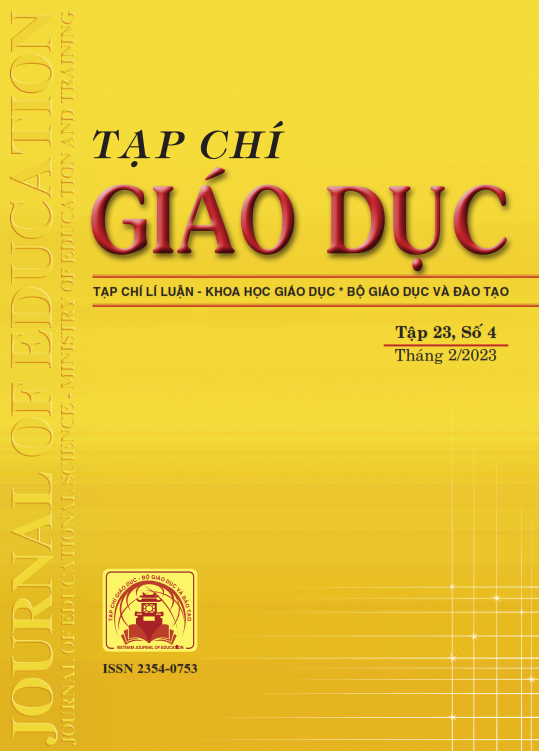Nghiên cứu về tính tự chủ của sinh viên đại học trong giai đoạn học trực tuyến và học trực tiếp
Tóm tắt
Due to the Covid-19 Pandemic worldwide, some educational institutions implemented online education instead of physical classroom learning. Therefore, it is very important for students to be independent in their learning. This paper examines whether student autonomy differs between traditional and online learning environments through a survey of 225 first, second, and third year students from 03 universities in Vietnam. An ANOVA analysis was performed on the survey data (SPSS). The findings indicate that, although there was no significant difference in the levels of learner autonomy in the three groups during the face-to-face learning period, there was a difference in the online learning phase between the three groups of students. In addition, over the two study periods, there were significant changes in learner autonomy among the first- and second-year students, but not third-year students.
Tài liệu tham khảo
Adianingrum, E. K. (2017). Learner autonomy in language learning : English education students ’ attitudes. Conference on Language and Language Teaching, 1999, 473-478.
Benson, P. (2016). Language learner autonomy: Exploring teachers’ perspectives on theory and practice. Language Learner Autonomy: Teachers’ Beliefs and Practices in Asian Contexts, XXXIII-XLIII.
Dixon, D., Ushioda, E., Nesi, H., & Smith, R. (2011). Measuring language learner autonomy in tertiary-level learners of English. Centre for Applied Linguistics.
Goulão, M. de F., & Menedez, R. C. (2015). Learner Autonomy and Self-regulation in eLearning. Procedia - Social and Behavioral Sciences, 174, 1900-1907. https://doi.org/10.1016/j.sbspro.2015.01.853
Holec, H. (1981). Autonomy and Foreign Language Learning. Oxford/New York: Pergamon Press. (First Published 1979, Council of Europe).
Murase, F. (2009). Measuring learner autonomy: A pilot study. PAC7 at JALT2008 Conference Proceedings, 1252-1261.
Nguyen, S. Van, & Habók, A. (2021). Designing and validating the learner autonomy perception questionnaire. Heliyon, 7(4), e06831. https://doi.org/10.1016/j.heliyon.2021.e06831
Serdyukova, N., & Serdyukov, P. (2013). Student autonomy in online learning. CSEDU 2013 - Proceedings of the 5th International Conference on Computer Supported Education, 229-233. https://doi.org/10.5220/0004353102290233
Smith, R., Kuchah, K., & Lamb, M. (2017). Learner autonomy in developing countries. In Autonomy in Language Learning and Teaching: New Research Agendas (pp. 7-27). Palgrave Macmillan. https://doi.org/10.1057/978-1-137-52998-5_2
Surabaya, U. N. (2021). Exploring learner autonomy in online classes among indonesian elf students. Research on English Language Teaching in Indonesia, 9(02), 112-119.
Victori, M., Lockhart, W. (1995). Enhancing metacognition in self-directed language learning. System, 23(2), 223-234. https://doi.org/10.1016/0346-251X(95)00010-H
Xu, J. (2009). A Survey Study of Autonomous Learning by Chinese Non-English Major Post-graduates. English Language Teaching, 2(4), 25-32.
Tải xuống
Đã Xuất bản
Cách trích dẫn
Số
Chuyên mục
Giấy phép

Tác phẩm này được cấp phép theo Ghi nhận tác giả của Creative Commons Giấy phép quốc tế 4.0 .












